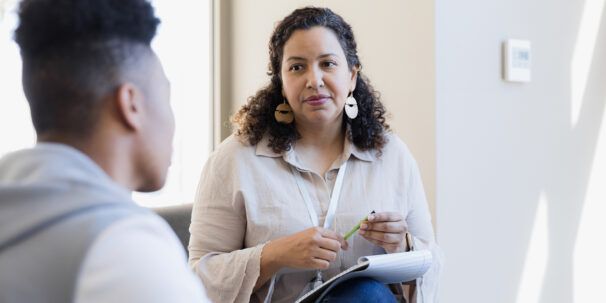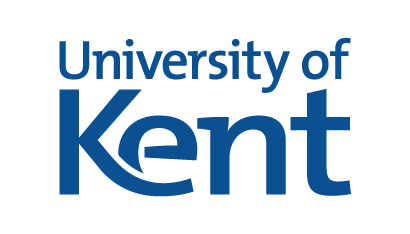How to become an educational psychologist
Are you interested in the way young people think and behave? Discover how to become an educational psychologist – and start your journey today.

Do you want to help young people learn and grow? If the answer is a resounding “yes”, then let’s dive into the world of educational psychology – where you can make a genuine difference to the lives and wellbeing of young people.
In this guide, you’ll learn how to become an educational psychologist. We’ll discuss everything from what an educational psychologist does to what your earning potential could be, so you can decide whether this is the right career for you.
What is an educational psychologist?
So, what exactly does an educational psychologist do? You’ll work with children, young people, families, and schools, using your knowledge of learning habits to tailor the learning experience for all abilities.
Your role will involve understanding their needs, creating behaviour management programmes, collaborating with parents and educators, or even contributing to research. No matter what, you can be confident that your impact will be meaningful.
Typically, an educational psychologist will work with young people up to the age of 25 years old, with the exception of family members and school staff.




What are the responsibilities of an educational psychologist?
An educational psychologist works at speciality clinics and schools at various different levels. This includes working with:
- Individuals – working one-to-one to understand children’s individual needs and make sure the school supports these learning requirements.
- Groups – assisting a group of children that have similar needs.
- Supporting systems – working on improving the systems around a child. For example, helping a school to develop its diversity and inclusion in education policy.
From assessing teaching methods to developing learning programmes, your responsibilities as an educational psychologist are vast and varied. Some of your day-to-day tasks will include:
- Assessing the learning needs of young people
- Diagnosing learning disabilities and behavioural issues in children
- Analysing existing course materials and teaching methods to find areas of improvement
- Designing and developing behaviour management programmes
- Interacting with parents and school staff to develop teaching methods and discuss the needs of a child
- Teaching educators about identifying signs of learning disabilities and behavioural issues
- Working with other mental health professionals to develop and contribute to research studies
- Developing effective interventions to promote psychological wellbeing and behavioural development
- Conducting research and informing policy
- Helping to raise overall educational standards
What qualifications are needed to become an educational psychologist?
In the UK, you’ll need to complete a psychology degree or conversion course accredited by The British Psychological Society (BPS). This is typically a four-year bachelor’s degree programme.
After you’ve graduated, you’ll then need to complete a three-year, BPS-accredited Doctorate in educational psychology. To be accepted onto a Doctorate course, you’ll usually need to achieve a 2:1 or higher, as well as a minimum of one year’s full-time experience working with children and young people. However, entry requirements will depend on the course and university you choose.
Once you’ve successfully completed your Doctorate and have the necessary qualifications, you’ll be eligible to apply for chartered membership of the BPS and register with the Health & Care Professions Council (HCPC).
How long does it take to become an educational psychologist?
The length of time it takes to become an educational psychologist completely depends on how quickly you complete your degree and Doctorate. It’ll also depend on whether you gain the necessary experience during or after your bachelor’s degree.
However, as a general rule, you can expect it to take approximately eight years.




What are the typical working hours of an educational psychologist?
As an educational psychologist, your schedule is as flexible as it is rewarding.
On average, you’ll be expected to work 36 to 40 hours a week. While most of your work will be done during school hours Monday to Friday, there will be times where you need to be flexible – for example, meetings with parents outside of working hours.
How much does an educational psychologist make?
Your salary as an educational psychologist will depend on how much experience you have, the position you apply for, and where you work.
As a benchmark, in the UK, you can expect to earn approximately between £24,970 to £34,107 as a trainee educational psychologist. In the early stages of your career this can rise to £38,865 and as your experience develops, you can expect to earn up to £52,440. As a senior or principal educational psychologist, you can earn anywhere between £48,727 to £65,707.
Other average educational psychologist salaries from around the world include:
- Australia – A$113,458
- India – ₹2.1L
- Philippines – PHP 659,200
- US – $93,419
What careers are available as an educational psychologist?
If you choose to become an educational psychologist, you’ll likely be employed by:
- Local authority children’s services
- Colleges and schools
- Community environments
- NHS hospital trusts (in the UK)
- Private consultancies
In terms of career development, your journey could be a ladder of progress, from trainee to senior educational psychologist, or you might choose to specialise in a certain area. The possibilities are as diverse as the minds you’ll be helping to support and grow.
Many educational psychologists work towards becoming self-employed, so they can work on a freelance basis.
You may also want to take the skills you’ve developed as an educational psychologist to specialise in another area of psychology.




How to become an educational psychologist: additional learning
As an educational psychologist, you’ll be able to have a hugely positive impact on the lives of young people during some of their most challenging years of development.
Dive into the world of educational psychology and take the first step towards shaping a brighter future. Get started by exploring some of our range of psychology and youth mental health courses at FutureLearn.
Online youth psychology courses at FutureLearn
- Neuroleadership and Conceptual Approaches in Educational Neuroscience by Central Queensland University
- Understanding Depression and Low Mood in Young People by University of Reading
- Teaching Students Who Have Suffered Complex Trauma by Queensland University of Technology
- Understanding ADHD: Current Research and Practice by King’s College London
- Understanding Autism by University of Kent




